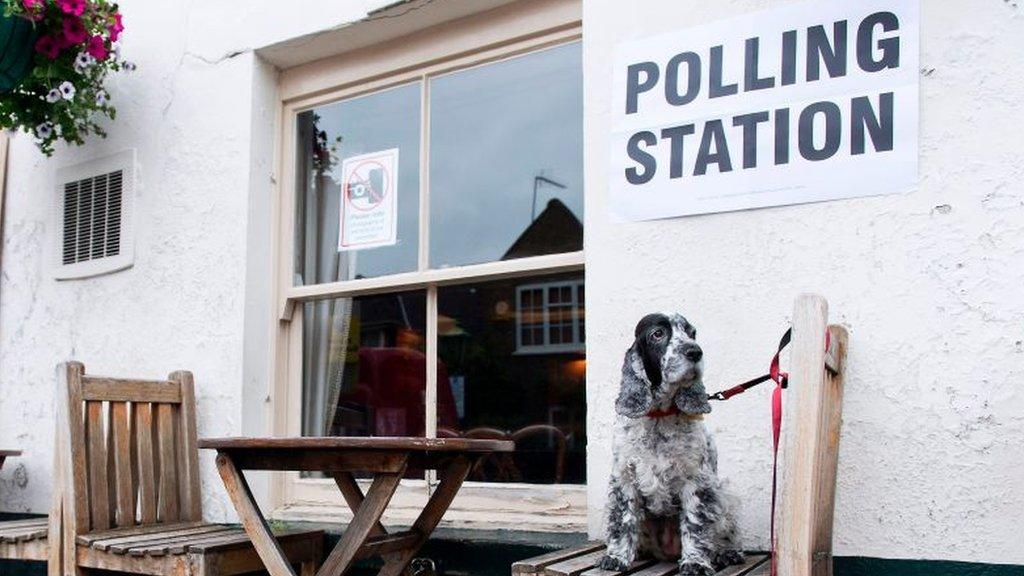General election 2019: Will Johnson benefit from Farage's decision?
- Published
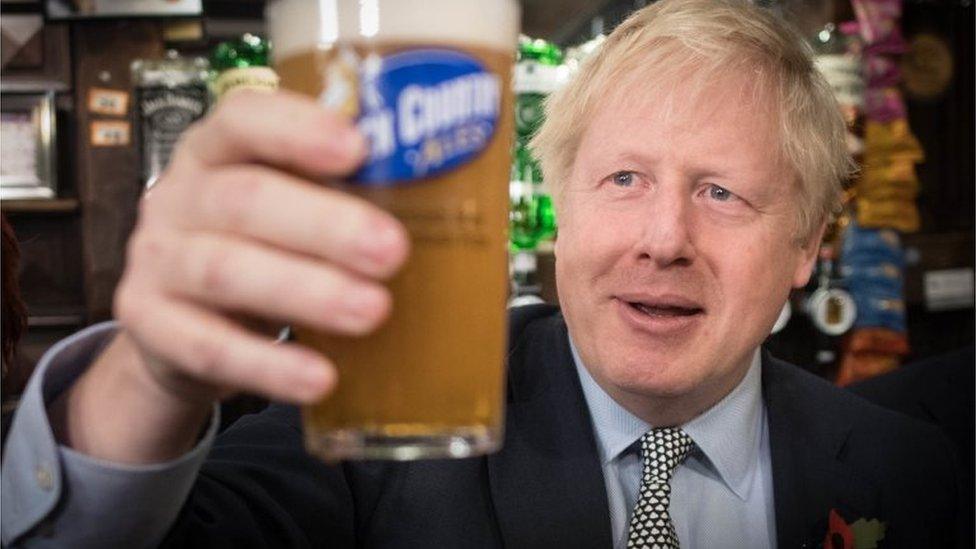
A couple of months ago Nigel Farage and some of his team gathered a group of reporters together in a glossy hotel in London's St James's.
Alongside the fruit salad and mini bacon brioches (at least I think that's what they were) there was big, ambitious talk of taking on the established political parties in a major way, the plan to take on the Tories and Labour across the country as and when the general election was called.
Fresh from topping the poll in the European elections in a resounding way, astonishingly for a party that had barely existed a couple of months before, the Brexit Party was talking a bold game and it looked like they could be on the march.
Well, this lunchtime that's all changed.
With Boris Johnson having struck a deal with the EU, and an election now under way, the reality of what the Brexit Party was promising then, fielding a slate of candidates right across the country started to look a bit flaky around the edges.
Last week, when the party launched its campaign, they were still swearing they would do that, unless the Tories dropped the deal with the EU.
Time and again Nigel Farage called for a pact or what he dubbed a 'Leave Alliance', even getting his friend Donald Trump to join in, even though there was precious little interest from senior Conservatives.
In what looks like it could be a tight election, and certainly an unpredictable one, there was building pressure from Tories for the Brexit Party to pull out.
Now, they have.
Farage: "The Brexit Party will not contest 317 seats"
Mr Farage will not contest seats where the Tories are running - a "big step in the right direction", says one Cabinet minister.
"It really clarifies it for a significant subgroup who were still very torn," says another member of the government.
Hypothetically, the decision by the Brexit Party leader makes it notionally easier for the Tories to keep seats they hold already.
But it's a million miles away from giving them a clear run.
Mr Farage says he will still stand candidates in Labour areas. And for the prime minister to get the majority he craves, the Tories have to take seats that are currently held by Labour, not just hold on their existing MPs.
In those places, the Brexit Party could still nibble away at Tory votes making it harder for them to win.
Given how complicated this election is though, the Brexit Party could also take votes from Labour in some seats, which could benefit the Tories.
'Squeamish'
Boris Johnson's opponents are already though using Mr Farage's decision to attack him, making the claim that it shows they are peas in a pod.
Senior Conservatives always deny fervently any suggestions that there have been any pacts, any discussions of any alliances or much common ground either.
They will have to answer the accusation repeatedly in this election, as suggested by Jeremy Corbyn and others already, that this is a "Trump alliance that is Thatcherism on steroids".
Although it will be denied and denied again, some Tory voters may indeed feel squeamish.
'Dodgy crystal ball'
In short, anyone who tells you confidently exactly what the impact of Brexit Party candidates will be is putting a lot of faith in a dodgy crystal ball.
And I wouldn't bet more than a bus fare either that the Brexit Party will actually end up standing candidates in all of the seats they say they will today.
In fact, less than two hours since the announcement, they have already confirmed that they won't take on the Liberal Democrats in Brecon.
But overall it does make life a bit more straightforward for the Conservatives.
And it underlines the likelihood of this being an election that has strong echoes of 2016, where the electorate divides into two tribes, signified by their attitudes to the EU.
- Published11 November 2019
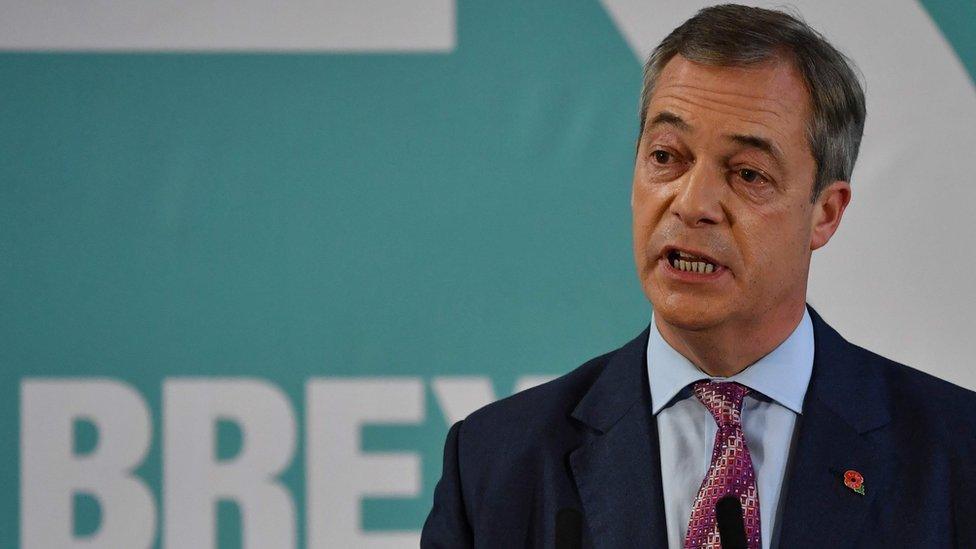
- Published1 November 2019
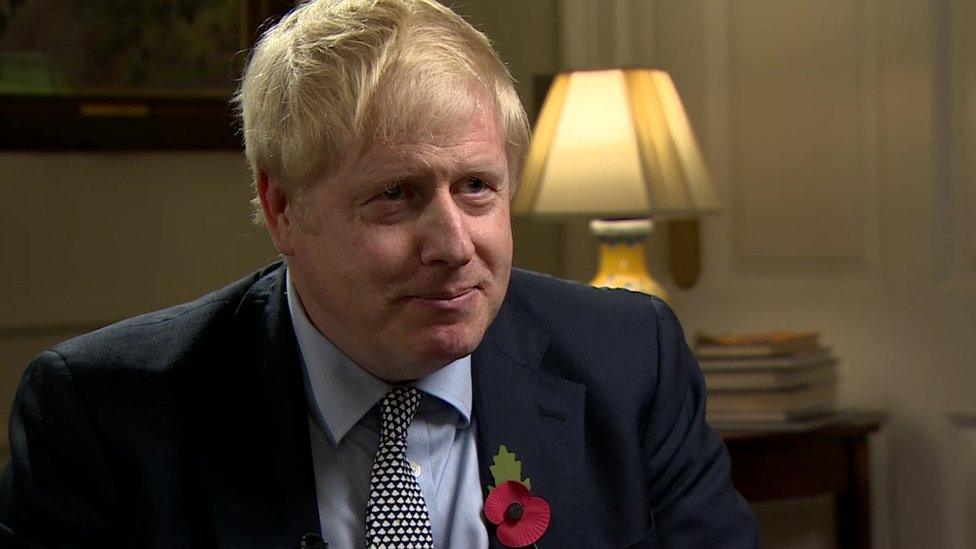
- Published7 November 2019
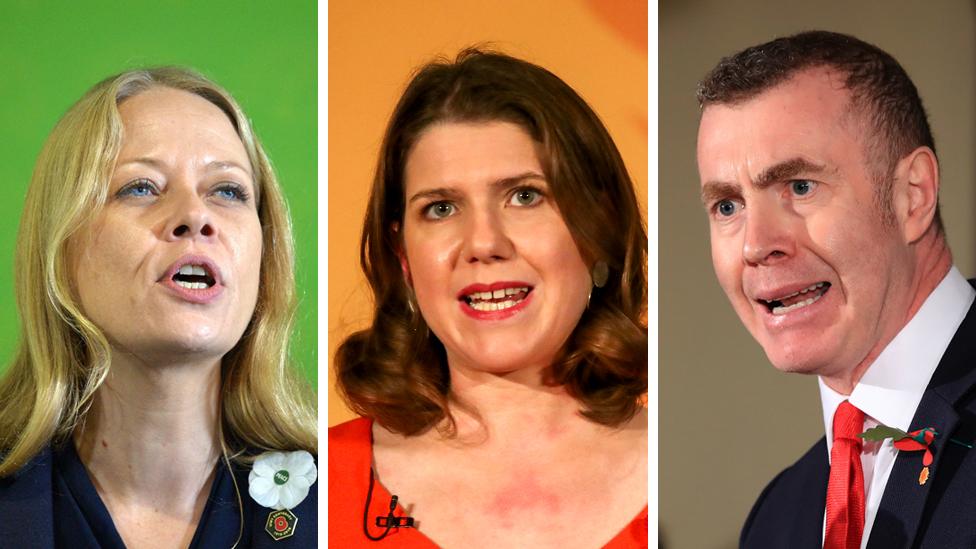
- Published13 November 2019
